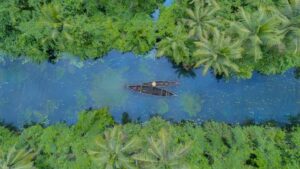Recommendations for working with indigenous peoples in rural water and sanitation
This document is one of the outcomes of a joint research initiative called Trans-cultural Transparency. It focuses on how to overcome socio-cultural clashes between communities, service providers, development co-operation actors and local authorities, particularly in areas with large groups of indigenous peoples. It poses recommendations to be borne in mind by stakeholders working on water and sanitation with indigenous peoples in Latin America. The recommendations made in the document apply to any work on water and sanitation in rural areas, but they are especially relevant to work with indigenous and ethnic minorities. Socio-cultural differences here matter very much for defining and realizing successful projects.
The Transcultural Transparency initiative arose from the demand of development practitioners working with water and sanitation in rural indigenous communities. They expressed a need for more systematic information about issues to keep in mind and ways of dealing with the different world views of the various actors involved, and what would be the most efficient way to intervene in these areas.
The recommendations are based on the results of two coordinated research processes:
- A literature review of over 100 project documents, evaluation reports, policies, strategies and thematic studies, and 185 scientific articles published on water, sanitation and indigenous populations and ethnic minorities; and
- Research conducted on site into different socio-cultural barriers associated with service provision, with six communities of indigenous peoples, descendants of African slaves and mestizos on the Caribbean Coast of Nicaragua.
A water and sanitation project with an intercultural approach is more likely to be sustainable if there are public policies which recognize and support the implementation of initiatives which respect the rights and aspirations of indigenous peoples. One of the central obstacles to appropriate sector policies is often the lack of knowledge and information on the situation of indigenous peoples, as data that describe indigenous peoples’ situation is scarce. At the same time, the attitude of those implementing the project and of partnering institutions is key if they are to engage respectfully with the indigenous peoples themselves.
Experiences from both MDG-F programmes and the Transcultural Transparency research project have shown that even if the enabling legislation is in place, its effects can be substantially hampered by lack of understanding or lack of respect for it. In changing these attitudes campaigns to raise public awareness and the provision of spaces for public dialogue between indigenous peoples and officials can both be instrumental.




